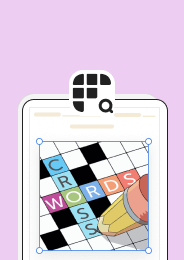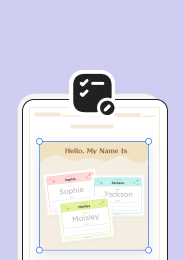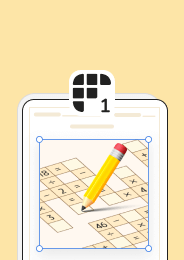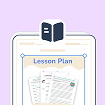High school offers more than just academic learning; it is a key time for personal development and future planning. Participating in extracurricular activities for high schoolers supports skill-building, strengthens college applications, and encourages students to explore their passions. From athletic teams and creative arts to career-focused clubs and volunteer groups, these experiences help teens identify their strengths and form meaningful connections. This guide highlights 70+ engaging extracurricular options along with practical tips to help students find activities that align with their goals.
Benefits of Extracurricular Activities for High Schoolers
Extracurricular activities offer high school students a wide range of benefits that go far beyond the classroom. These experiences contribute to both academic and personal development, helping students become more well-rounded individuals. Below are some of the key advantages:
- Enhanced College Applications: Colleges look for students who demonstrate initiative, leadership, and commitment outside of academics. Active involvement in extracurriculars helps applicants stand out.
- Skill Development: Participation helps students build important life skills such as teamwork, time management, communication, and problem-solving. These abilities play a vital role in achieving success in the future.
- Personal Growth: Trying different activities allows students to explore their interests, discover their strengths, and gain confidence in their abilities.
- Networking and Social Connections: Joining clubs and teams helps students form meaningful friendships and build connections with mentors, peers, and the community.
- Stress Relief and Well-being: Pursuing hobbies and interests outside of schoolwork provides a healthy outlet for stress and promotes a balanced lifestyle.
Popular Types of Extracurricular Activities for High Schoolers
Joining extracurriculars activities for high schoolers is a great way to make learning more rewarding. With so many options to match your interests, here are some popular categories to explore:
1. Sports and Athletics Activities
Participating in sports offers a fantastic way to stay fit, learn teamwork, and develop discipline. These activities teach perseverance, strategic thinking, and how to perform under pressure, all while promoting a healthy lifestyle.

- Basketball: A fast-paced team sport that builds agility, coordination, and strategic thinking.
- Soccer: A globally popular team sport emphasizing endurance, teamwork, and tactical play.
- Track & Field: Develops individual speed, strength, and endurance across various running, jumping, and throwing events.
- Martial Arts (e.g., Karate, Taekwondo): Fosters discipline, self-defense skills, physical fitness, and mental focus.
- Volleyball: A dynamic team sport that improves communication, quick reflexes, and jumping ability.
- Swimming: An excellent full-body workout that builds endurance, strength, and water safety skills.
- Tennis: An individual or doubles sport that enhances agility, hand-eye coordination, and strategic thinking.
- Cross Country: Builds stamina and mental toughness through long-distance running, often in natural environments.
- Golf: Develops precision, focus, and patience, often played individually or in small groups.
- Gymnastics: Enhances flexibility, strength, balance, and coordination through various acrobatic routines.
- Wrestling: Teaches discipline, strength, agility, and strategic grappling techniques.
- Badminton: A quick-paced racquet sport improving reflexes, agility, and strategic play.
2. Academic Clubs and Competitive Teams
These clubs are perfect for students who want to delve deeper into their favorite subjects, expand their knowledge beyond the curriculum, and build impressive resumes for college applications. They often involve critical thinking, research, and collaborative problem-solving.

- Debate Team: Sharpens public speaking, critical thinking, research, and persuasive argumentation skills.
- Robotics Club: Combines engineering, coding, and teamwork to design, build, and program robots for competition.
- Math Club: Explores advanced mathematical concepts, solves complex problems, and often participates in math competitions.
- Model UN (Model United Nations): Simulates UN diplomatic processes, fostering research, public speaking, negotiation, and global awareness.
- Science Olympiad: Challenges students in various science and engineering disciplines through hands-on events and competitive exams.
- Mock Trial: Simulates court proceedings, developing legal reasoning, public speaking, and acting skills.
- Academic Bowl/Quiz Bowl: Tests general knowledge across various subjects in a fast-paced, competitive team format.
- Chess Club: Develops strategic thinking, problem-solving, and patience through the game of chess.
- Foreign Language Clubs: Enhances language proficiency and cultural understanding through conversation, activities, and events related to specific languages (e.g., Spanish Club, French Club).
- Philosophy Club: Encourages critical discussion and exploration of fundamental questions about existence, knowledge, values, and reason.
- History Club: Deepens understanding of historical events, figures, and periods through research, discussions, and presentations.
- Literary Magazine: Involves students in writing, editing, and publishing creative works, fostering literary appreciation and communication skills.
3. Arts and Performing Activities
For those with a creative spark, arts and performing activities provide a powerful outlet for self-expression, fostering imagination, discipline, and often leading to public performance opportunities that build confidence.

- Drama Club: Develops acting, stage production, public speaking, and collaborative storytelling skills through theatrical performances.
- Orchestra/Band: Enhances musical talent, teamwork, discipline, and performance skills through instrumental practice and concerts.
- Choir: Builds vocal skills, musicality, and teamwork through singing in a group.
- Ceramics Club: Explores artistic expression and fine motor skills through working with clay and creating ceramic pieces.
- Yearbook Club: Combines photography, graphic design, writing, and organizational skills to create the annual school yearbook.
- Photography Club: Teaches photographic techniques, composition, and visual storytelling.
- Creative Writing Club: Provides a space for students to develop their storytelling abilities, poetry, and prose.
- Dance Team: Develops coordination, rhythm, choreography skills, and stage presence through various dance styles.
- Graphic Design Club: Focuses on digital art, layout, and visual communication using design software.
- Film Production Club: Teaches filmmaking processes, including scriptwriting, directing, camera work, and editing.
- Drawing & Painting Club: Offers opportunities to explore various artistic mediums and techniques, fostering visual creativity.
- Improv Club: Develops spontaneous thinking, quick wit, and teamwork through improvisational acting exercises.
4. Hobby and Interest-Based Clubs
These clubs are often less formal, providing a relaxed environment for students to connect with peers who share similar interests. They’re excellent for having fun, building friendships, and providing stress relief.

- Chess Club: Develops strategic thinking, problem-solving, and patience through the game of chess.
- Cooking Club: Teaches culinary skills, promotes creativity, and fosters appreciation for different cuisines.
- Dungeons & Dragons/Gaming Club: Encourages imagination, strategic thinking, problem-solving, and social interaction through role-playing and board games.
- Book Club: Fosters a love of reading, critical analysis, and engaging discussion about literature.
- Anime/Manga Club: Provides a space for fans to discuss, share, and celebrate Japanese animation and comics.
- Environmental/Gardening Club: Promotes sustainability, environmental awareness, and hands-on experience with gardening.
- Outdoor/Adventure Club: Organizes activities like hiking, camping, and rock climbing, fostering an appreciation for nature and physical activity.
- Robotics Enthusiast Club (non-competitive): Focuses on learning about and building robots for personal interest and exploration.
- Fashion Club: Explores fashion design, history, and trends, often involving creating or styling.
- Photography Club (non-competitive): A more relaxed setting to explore photography as a hobby and share work.
- Calligraphy/Hand Lettering Club: Teaches the art of decorative handwriting, promoting patience and artistic skill.
- Meditation/Mindfulness Club: Offers practices for stress reduction, focus, and mental well-being.
5. Career-Oriented Extracurriculars
These activities are invaluable for high schoolers who are already thinking about their future career paths. They provide practical experience, networking opportunities, and insights into various professions.

- Future Business Leaders of America (FBLA): Develops leadership, business acumen, and career readiness skills through competitive events and community service.
- HOSA (Health Occupations Students of America): Prepares future healthcare professionals through leadership development, service, and academic competitions.
- Coding Club: Teaches programming languages, computational thinking, and problem-solving through coding projects and challenges.
- DECA: Prepares emerging leaders and entrepreneurs for careers in marketing, finance, hospitality, and management.
- Journalism Club/School Newspaper: Provides hands-on experience in reporting, writing, editing, and publishing, often covering school news and events.
- Computer Science Club (beyond coding): Explores broader topics in computer science, including algorithms, data structures, and cybersecurity.
- Pre-Law Club/Mock Trial: Offers insights into the legal profession and develops skills essential for legal careers.
- Engineering Club: Focuses on practical engineering projects, design challenges, and problem-solving.
- Medical Explorers/Science Fair: Allows students to conduct independent research, explore scientific fields, and present their findings.
- Investment Club: Teaches financial literacy, market analysis, and investment strategies.
- Entrepreneurship Club: Fosters innovation and business skills through developing and pitching business ideas.
- Architecture Club: Explores architectural design principles, history, and model building.
6. Leadership, Community Service, and Advocacy Clubs
These clubs are perfect for students looking to develop strong leadership skills, cultivate social responsibility, and make a positive impact on their school or wider community.

- Student Government: Allows students to represent their peers, organize school events, and advocate for student interests.
- Key Club: A student-led organization that promotes community service, character building, and leadership development.
- Red Cross Club: Engages students in humanitarian efforts, including blood drives, disaster preparedness, and health education.
- Environmental Clubs: Focus on raising awareness about environmental issues, promoting sustainability, and organizing conservation efforts.
- National Honor Society (NHS): Recognizes outstanding high school students who demonstrate excellence in scholarship, leadership, service, and character, often involving community service initiatives.
- Peer Tutoring/Mentoring Programs: Develops teaching skills, empathy, and leadership by helping younger or struggling students.
- Girl Scouts/Boy Scouts (if still active in HS): Continues to build leadership, outdoor skills, and community service values.
- Amnesty International Club: Focuses on human rights advocacy and raising awareness about global issues.
- Diversity & Inclusion Club: Promotes understanding and acceptance of different cultures, backgrounds, and perspectives within the school community.
- Habitat for Humanity Youth Chapter: Involves students in building and rehabilitating homes for those in need.
- Interact Club (Rotary International sponsored): Develops leadership and responsible citizenship while carrying out service projects.
- Fundraising/Charity Clubs: Organizes events and initiatives to raise money and awareness for various charitable causes.ư
Frequently Asked Questions
1. What is the most popular extracurricular activity?
The most popular extracurricular activity for high schoolers is typically sports, especially team sports like basketball, soccer, and football. These activities are widely available at most schools, attract large student participation, and offer benefits such as physical fitness, teamwork, and school spirit.
2. What are the 5 types of extracurricular activities?
Extracurricular activities can be grouped into five main categories, each offering unique benefits for students’ growth and development.
- Academic activities include Debate Team, Math Club, and Science Olympiad.
- Sports and athletics include Basketball, Soccer, Swimming, and Track and Field.
- Arts and performing activities include Drama Club, Band, Choir, and Visual Arts.
- Community service and volunteering include Key Club, Red Cross Club, and local projects.
- Career and leadership development activities include Student Government, FBLA, Coding Club, and Model UN.
Wrap Up
Extracurricular activities for high schoolers are more than just a way to pass time. They are powerful tools for personal growth, skill development, and future success. Whether you want to strengthen your college application, explore new interests, or make new friends, there is an activity that fits your goals. By choosing the right mix of experiences, students can make the most of their high school journey and build a strong foundation for what lies ahead.

































